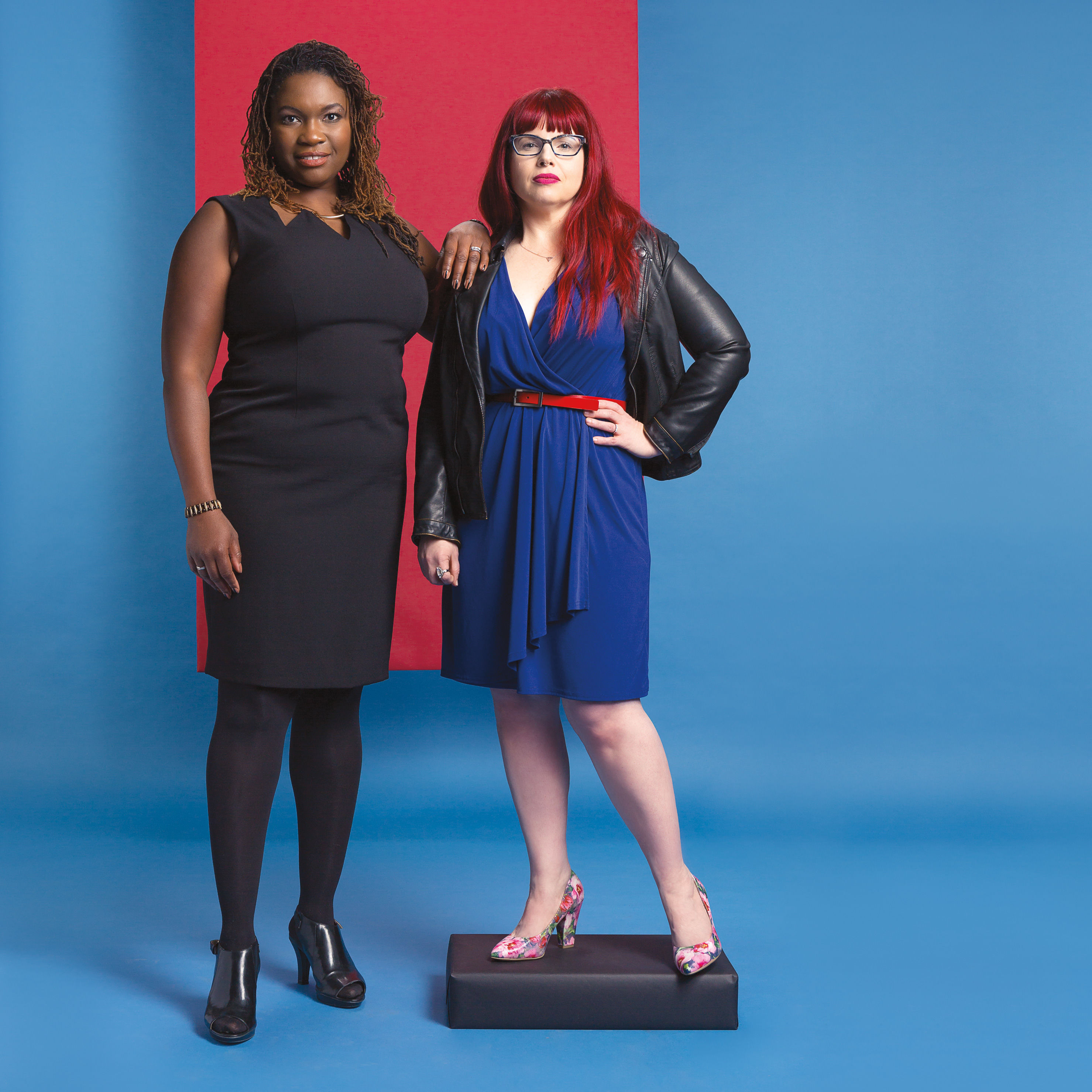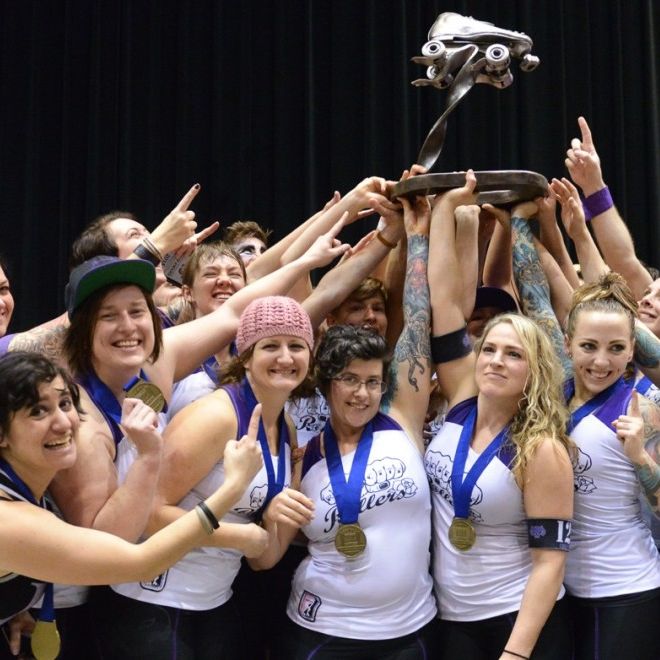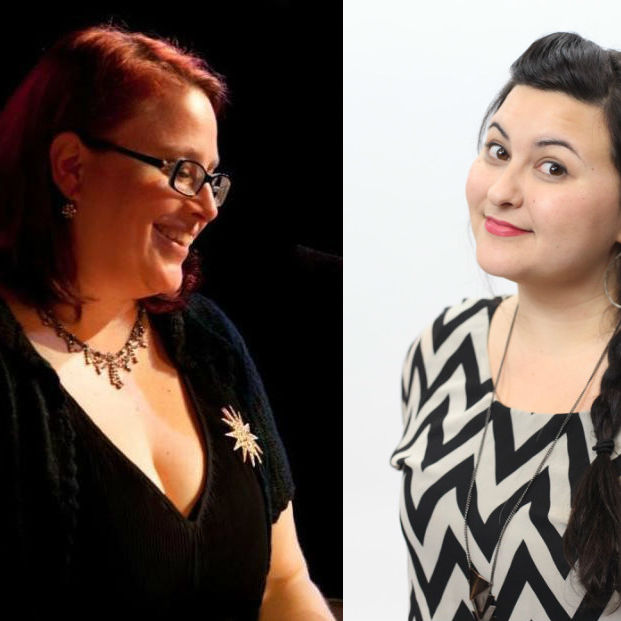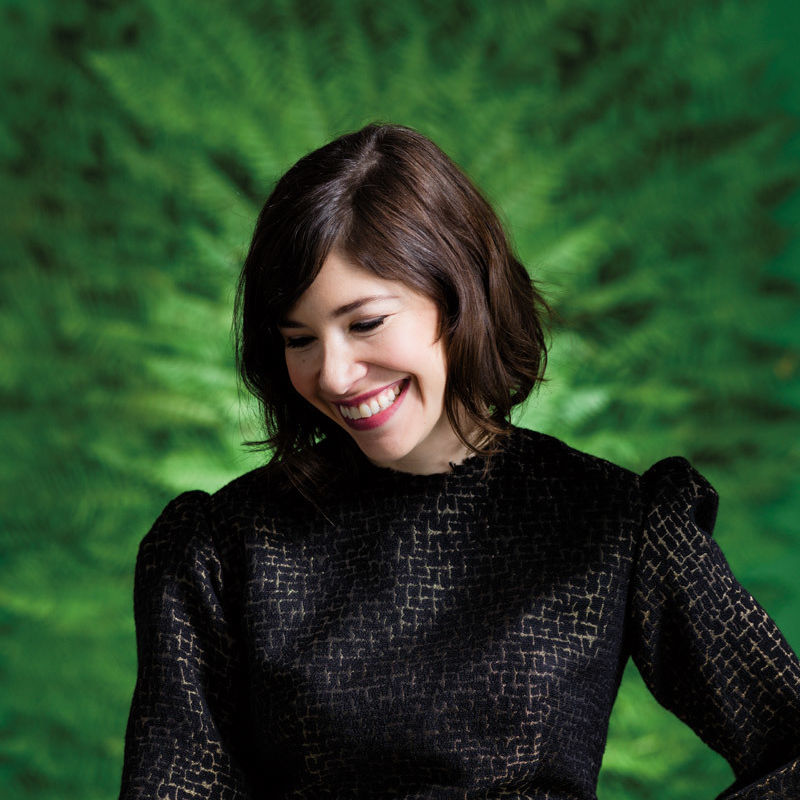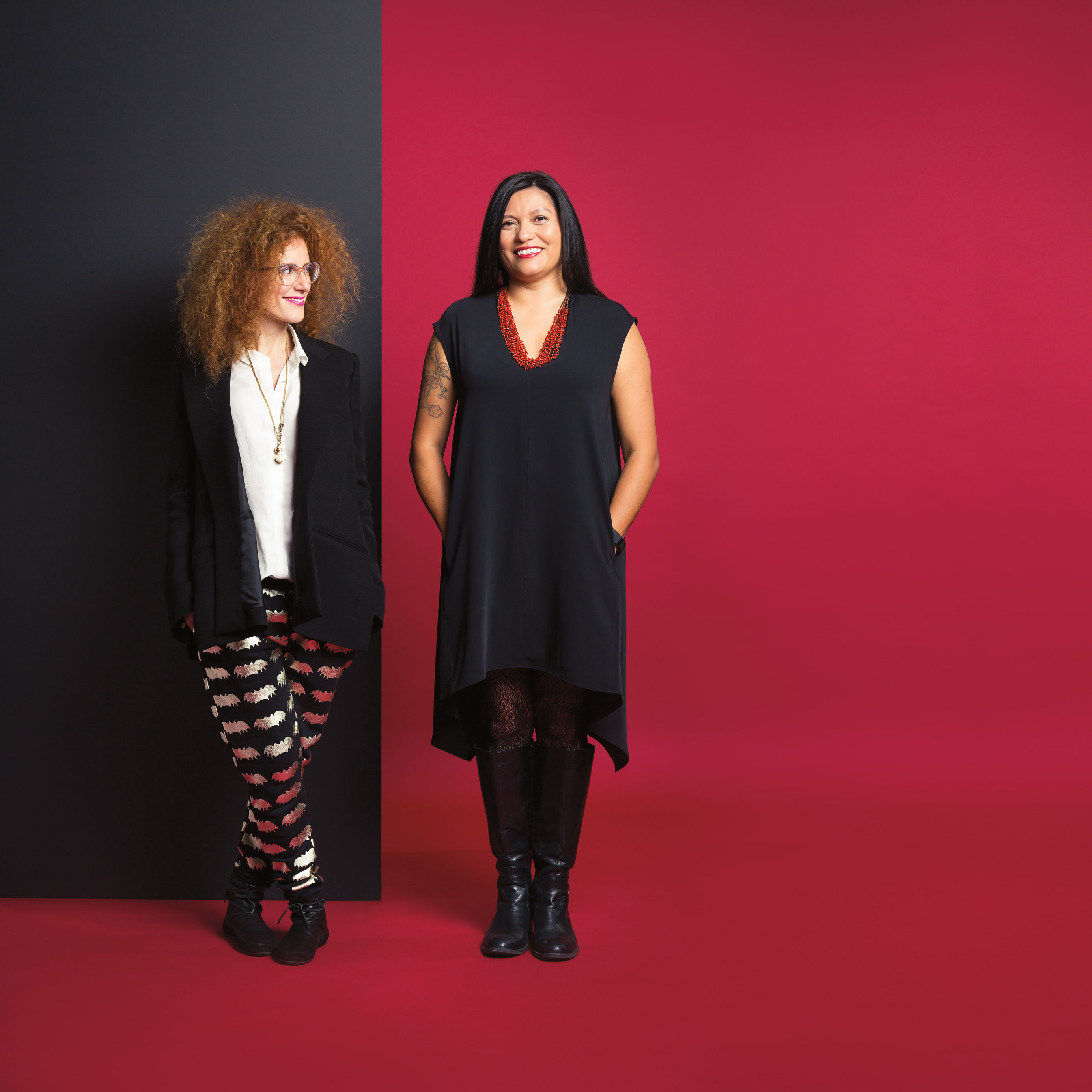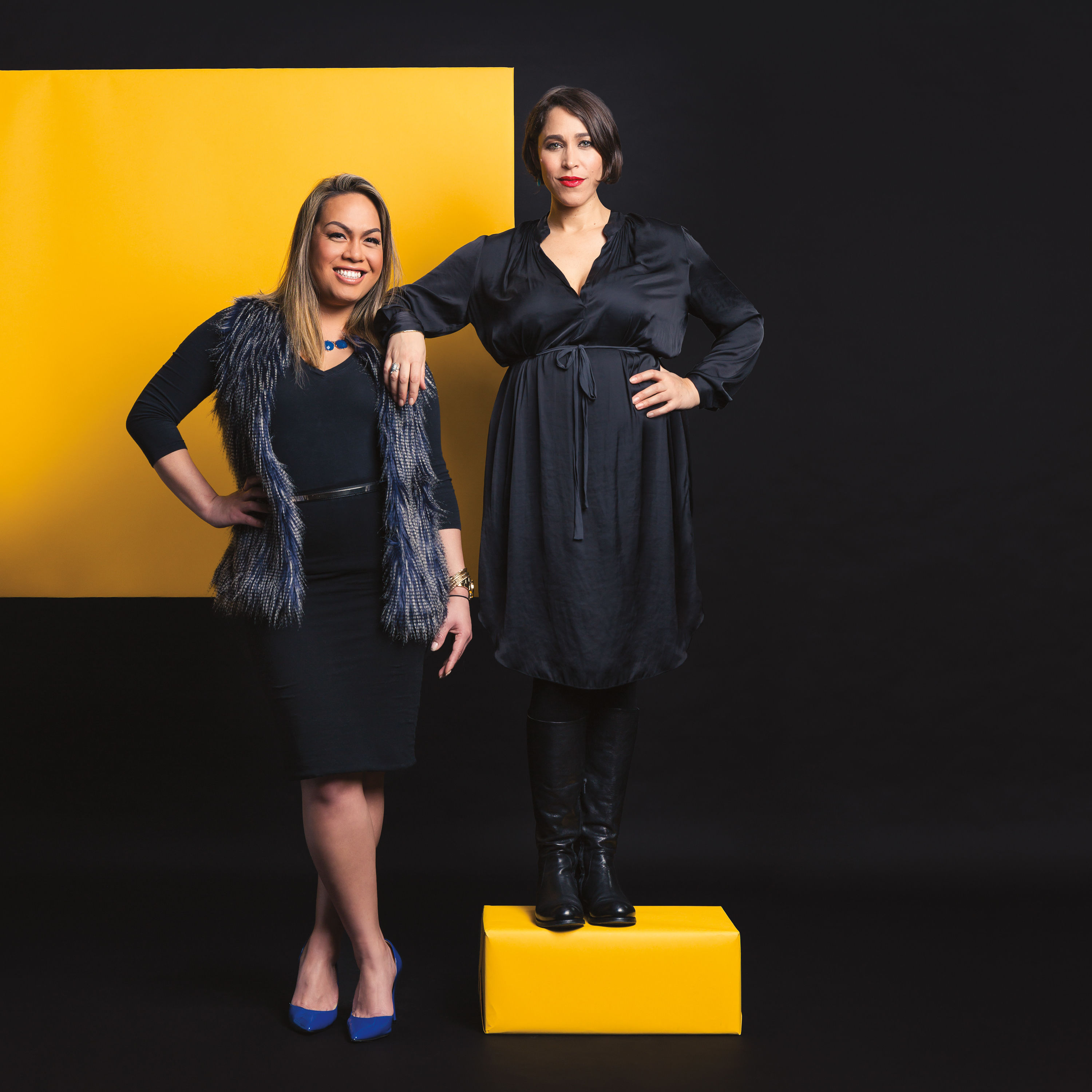Guiding Oregon’s Arts and Assets
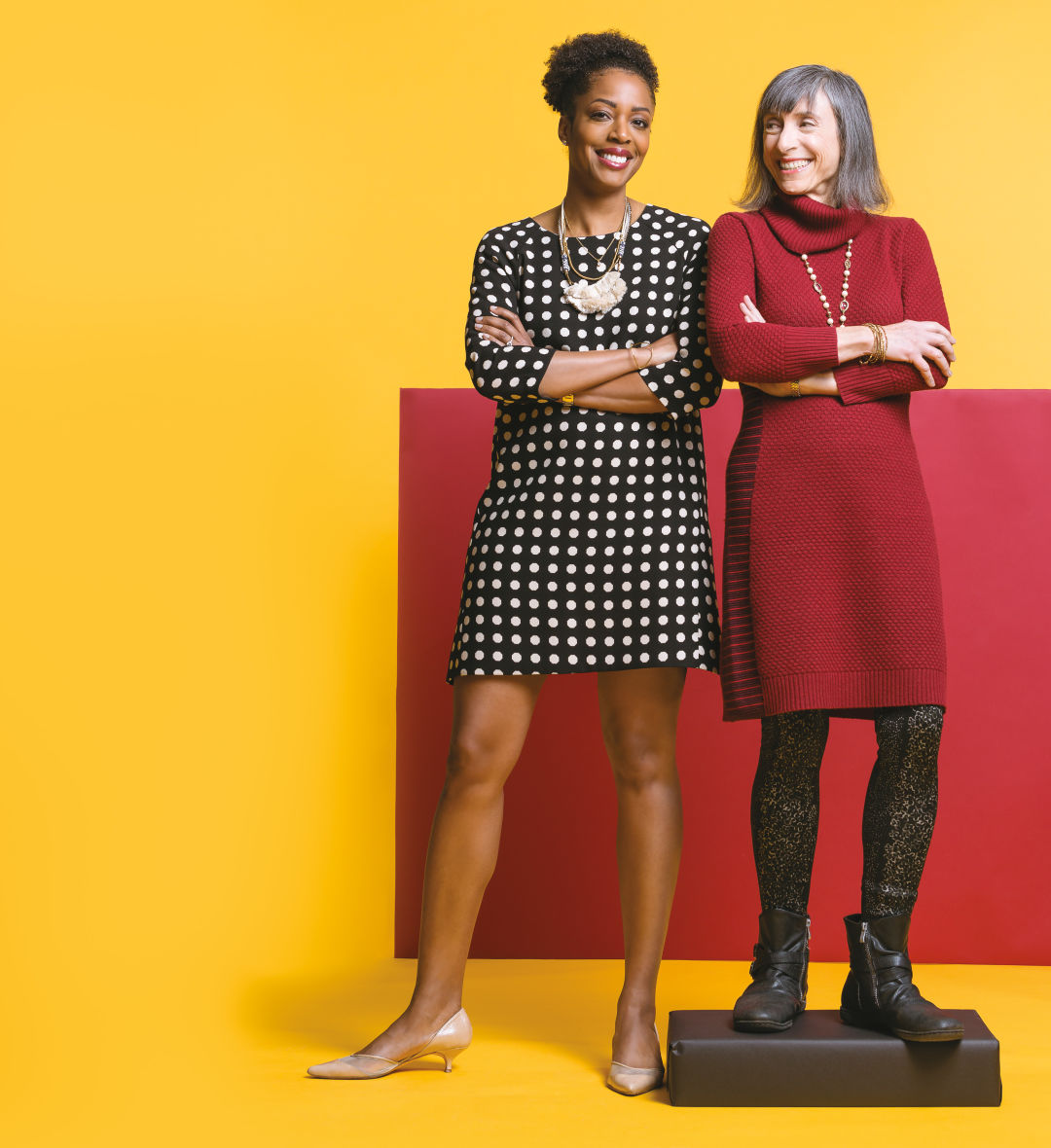
Image: Nicolle Clemetson
As chief investment officer of Meyer Memorial Trust, Rukaiyah Adams manages nearly $800 million. (That’s one of her smaller portfolios to date.) Ronni Lacroute, owner of WillaKenzie Estate and former Silicon Valley insider, sponsors nearly every theater company in town. Together, these two profoundly influence Oregon’s arts and assets.
RONNI: I was born before the end of World War II, in the suburbs of New York. My dad got a job in government; they sent him to Poland during the Communist era. His territory included Bulgaria, Romania, Czechoslovakia, Russia. It was really dangerous. I went to school in Switzerland because no capitalists were allowed to go to Communist schools.
RUKAIYAH: Wow!
RONNI: Yeah, very wow. I was a teenager. And, I thought it was really fun to live a spy novel. The American embassy brought over American artists to perform throughout Poland. [My mother was] the one who brought them over and helped them with their tours; she introduced me to a lot of these famous artists.
RUKAIYAH: I can’t believe we haven’t met before. We’ve been running in the same circles.
RONNI: I’ve been hoping to meet you!
RUKIAYAH: So, this is my hometown. I grew up in Northeast Portland, very poor, I think it’s fair to say. But for whatever reason I was plucked out of the public school system to go to Catlin Gabel for high school. And from there I went to Carleton College [in Minnesota]. And from Carleton to Stanford Law School.
RONNI: I suspected that it was Stanford! [Both laugh.]
RUKAIYAH: I practiced law for many years. And was miserable. I decided that women and black people didn’t fight for me to have opportunity to squander it in misery, with a title and income but not agency.
I decided that I wanted to go back to my love of math; I went back to Stanford Business School, and left there to run a hedge fund in New York. When I left that job, I decided I’d just check in on [my mom], thinking I’d spend six or eight months of sabbatical here. That was almost five years ago.
I realized that I was feeling a lot of spiritual and cultural dissonance in New York. I love investing. But my values didn’t line up with investment culture—especially having managed money through the financial downturn. I was ready to move on to the softer skills of leadership—learn how to get comfortable being big, and not pretend to be small.
Go behind the scenes of our Oregon Woman photo shoot.
RONNI: I find it very interesting that you survived the investment community in New York. What was your comfort level there?
RUKIAYAH: I wasn’t comfortable at all! Honestly, I haven’t ever been comfortable. But, as a black girl, the message I got was, you’re beautiful. You can do it. You have to do it. By the time I went to Catlin Gabel, I was fully formed. I sort of had my homegirl helmet on. But I definitely felt pushed away from math and science as a young woman in high school.
RONNI: I got that too. I was told by my 12th-grade math teacher that I should be ashamed of myself for outdoing the boys, could I please stop.
My father raised me as if I were the first son. It’s like, I want you to be at the top of your game. Anything you want to be, go for it. I was quarterback of the neighborhood team. I did 50 pushups every morning. I still do them.
So when I became as a college professor, in the ’70s, I was not prepared for what happened. There were no laws protecting women’s employment. At one point [my male department chair] said, we’re eliminating your position and also the other women in the department. Goodbye! Just like that. So I brought in the National Organization of Women. I had a top lawyer. I was able to document that the women in the university were never given the same ranks, salaries, benefits. And I was told all of that was irrelevant, because there was no law protecting us. I had a lot of trouble with that. Eventually I landed on the ground as a high school teacher. And never faced that same issue—because it was acceptable for a woman to be a teacher.
RUKAIYAH: When I was running the [$7 billion investment] fund at the Standard— there’s something scary about a tall, Amazon Negress with power. It freaked people out to hear my high heels in the hallway. But there’s a twist in the charitable mission [at Meyer Memorial Trust]. If people think, for whatever reason, that I’m just a poor African girl trying to make people some money out of the whole foundation, that makes the ambition less scary.
And there may be something to why I was attracted to the mission as well. I took this job 20 months ago; I’m pretty sure I received the benefit of their grant-making growing up here in Northeast Portland.
RONNI: So it’s come full circle.
RUKAIYAH: My family moved here during the Great Migration. We’re one of the old historic black families in Portland. We’re now seven generations here; I’m in the fourth.
RONNI: I’ve been here 20 years.
RUKAIYAH: Let’s be clear about where we overlap though. I do not want this interview to go without saying that we both strongly the support the Red Door Project.
RONNI: Yes! When I first came to Portland, I found this a pretty conservative community in terms of the arts. There was some good theater, some good music, and so forth. But it was, OK, I’ll say it—old white person stuff.
RUKAIYAH: What is interesting to me about what’s evolving in Portland’s art scene is [that] white liberals in Portland like to talk a lot about equity and race. But in the arts scene, specifically, we need to have diversity everywhere: in the lighting staff, the set design team.
RONNI: Yes! Exactly! It’s still tokenism to a great extent in Portland.
RUKAIYAH: But I’ll tell you, Ronni, what’s driving my [theater] participation, in addition to the love of the arts is, as an African American in Oregon, there are really two ways that I can have impact that is greater than my individual effort: I can control the money. And I can control the story.
RONNI: Right. Go to Portland Center Stage and count the number of women directors; it’s not nearly what they’re bringing in for men directors. And women playwrights, same thing. Seriously, we’re still talking about like 20 percent! Women hold up half the sky—these voices are not being heard. We have a long way to go.
RUKAIYAH: You know, as an investor the numbers are [also] relatively small. I’m aware of how much influence and power I have. And I intend to use it for the benefit of women and people of color. Power isn’t like some big hot air balloon that’s already in the sky. It’s single little steps, right? Every decision we make, every day, is an expression of power.
